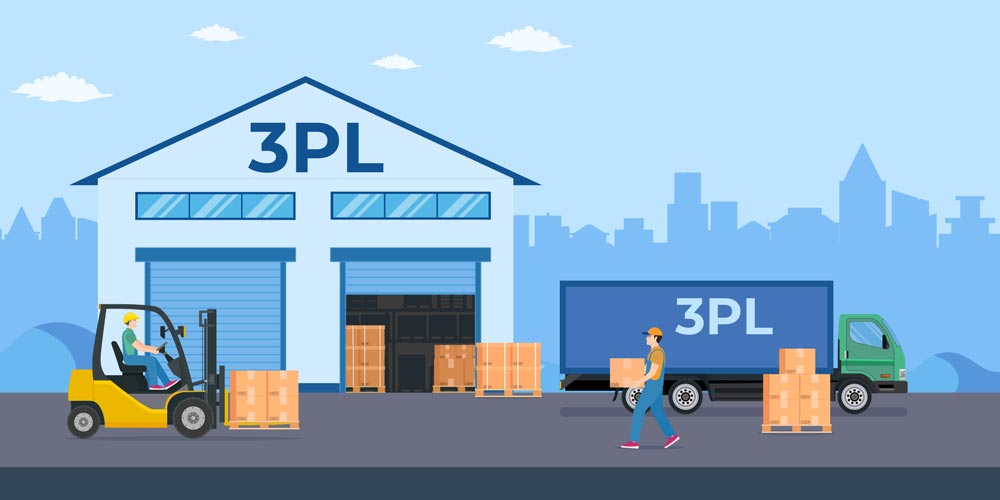
In recent years, there has been a significant growth in the trend of outsourcing warehousing operations to third-party logistics (3PL) companies. This practice allows businesses to focus on their core competencies while leveraging the expertise and resources of specialized logistics providers. In this blog post, we will explore the reasons behind this growing trend, its benefits and challenges, as well as provide up-to-date statistics from authoritative sources.
1. Introduction to Third-Party Logistics (3PL)
Third-Party Logistics (3PL) refers to the outsourcing of logistics and supply chain management activities to specialized companies. These companies offer a range of services including transportation, warehousing, inventory management, order fulfillment, and distribution. By partnering with 3PL providers, businesses can streamline their operations and gain access to advanced technologies and industry expertise.
2. Reasons for Outsourcing Warehousing Operations
There are several reasons why businesses choose to outsource their warehousing operations to 3PL companies:
a. Cost Savings: Outsourcing warehousing operations can lead to significant cost savings for businesses. 3PL providers have economies of scale, allowing them to spread costs across multiple clients and negotiate favorable rates with carriers and suppliers. Additionally, businesses can avoid capital investments in warehouse infrastructure, equipment, and technology.
b. Scalability and Flexibility: 3PL companies offer scalable solutions that can be easily adjusted based on business needs. As businesses experience fluctuations in demand or seasonal peaks, 3PL providers can quickly adapt their warehouse space, labor force, and transportation capacity accordingly.
c. Focus on Core Competencies: By outsourcing warehousing operations, businesses can focus on their core competencies such as product development, marketing, and customer service. This strategic shift allows companies to allocate more resources towards activities that directly contribute to their competitive advantage and growth.
d. Access to Expertise and Technology: 3PL providers specialize in logistics and supply chain management, bringing in-depth industry knowledge and expertise. They also invest in advanced technologies such as warehouse management systems (WMS), transportation management systems (TMS), and real-time tracking tools, which can enhance operational efficiency and visibility.
3. Benefits of Outsourcing Warehousing Operations
The outsourcing of warehousing operations to 3PL companies offers several benefits to businesses:
a. Improved Efficiency: 3PL providers are experienced in optimizing warehouse layouts, inventory management, and order fulfillment processes. By leveraging their expertise, businesses can achieve higher levels of efficiency, accuracy, and productivity in their supply chain operations.
b. Enhanced Customer Service: 3PL companies often have a wide network of distribution centers strategically located to reach customers quickly and cost-effectively. This enables businesses to offer faster delivery times, improved order accuracy, and better customer service, leading to higher customer satisfaction and loyalty.
c. Risk Mitigation: 3PL providers have robust risk management strategies in place to handle unforeseen events such as natural disasters, labor strikes, or disruptions in the supply chain. They can quickly adapt their operations and implement contingency plans to minimize the impact on businesses.
d. Global Reach: For businesses looking to expand into new markets or operate globally, partnering with 3PL companies can provide access to a worldwide network of distribution centers, transportation networks, and customs expertise. This helps businesses navigate complex international logistics requirements and achieve efficient cross-border operations.
4. Challenges of Outsourcing Warehousing Operations
While outsourcing warehousing operations offers numerous benefits, there are also some challenges that businesses need to consider:
a. Loss of Control: By entrusting their warehousing operations to a third party, businesses may experience a loss of control over certain aspects of their supply chain. It is crucial to establish clear communication channels, performance metrics, and service level agreements (SLAs) to ensure alignment and accountability between the business and the 3PL provider.
b. Integration and Compatibility: Integrating the systems and processes of a business with those of a 3PL provider can be complex. It is essential to ensure compatibility between the business’s enterprise resource planning (ERP) system and the 3PL provider’s warehouse management system (WMS) to enable seamless data exchange and visibility.
c. Data Security and Confidentiality: When outsourcing warehousing operations, businesses need to consider data security and confidentiality. They should establish robust data protection measures, including secure data transmission protocols, access controls, and non-disclosure agreements (NDAs) with the 3PL provider.
5. Statistics on Third-Party Logistics
To provide up-to-date statistics on the growing trend of outsourcing warehousing operations to 3PL companies, we refer to the following authoritative sources:
- According to a report by Armstrong & Associates, the global third-party logistics market reached $1.6 trillion in 2020, with an estimated compound annual growth rate (CAGR) of 7.5% from 2021 to 2028.
- The same report highlights that e-commerce has been a significant driver of growth in the 3PL industry, with increasing demand for warehousing and fulfillment services.
- A survey conducted by Capgemini Research Institute found that 68% of companies surveyed were using or planning to use third-party logistics providers for their supply chain operations.
- The Council of Supply Chain Management Professionals (CSCMP) reports that outsourcing warehousing operations can lead to cost savings of up to 30% for businesses.
